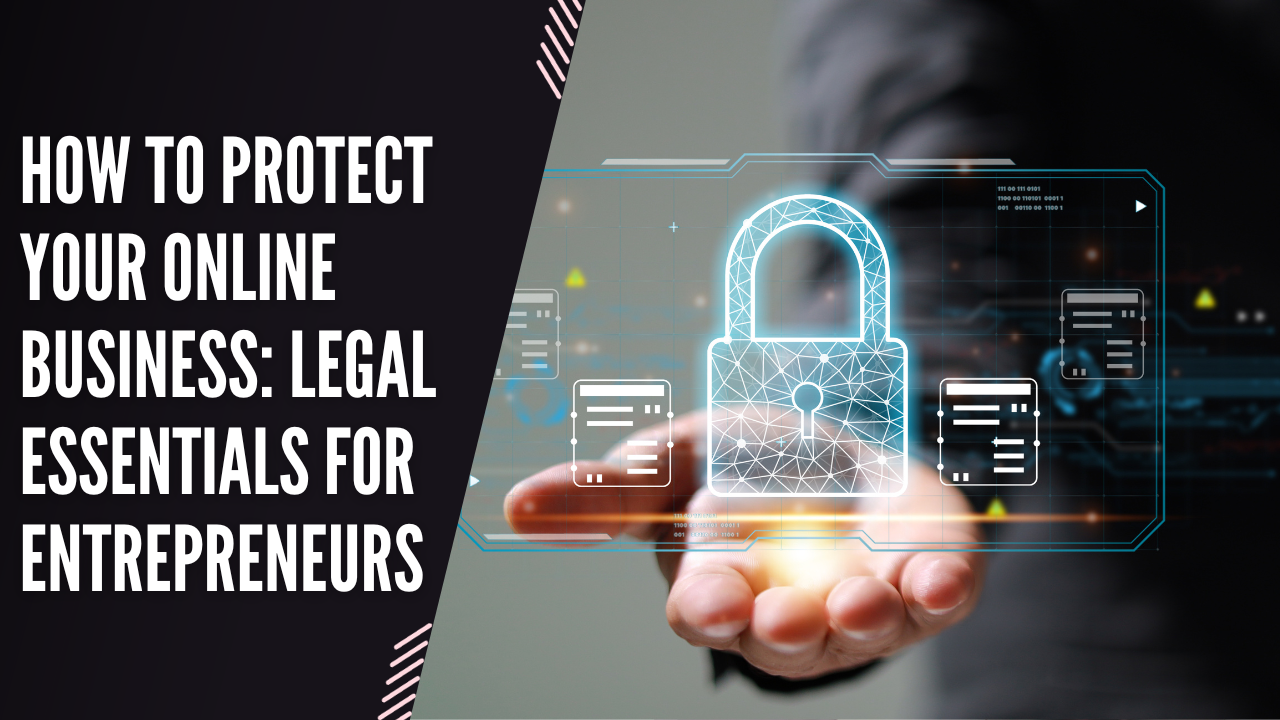Table of Contents
Introduction
Running an online business can offer immense opportunities and success, but it also comes with its fair of challenges. From intellectual property protection to avoiding legal pitfalls, online entrepreneurs must navigate a complex legal landscape to thrive and protect their interests. In this article, we will explore the key legal essentials for online entrepreneurs, drawing insights from experienced business lawyers. From forming a strong legal foundation to safeguarding your intellectual property, we’ve got you covered.
Formation and Structure of Your Online Business

Starting an online business requires careful consideration of its legal structure. Here are some key points to address:
- Sole Proprietorship vs. Legal Entity: Determine whether to operate as a sole proprietorship or establish a legal entity such as a limited liability company (LLC) or a corporation. Business lawyers recommend opting for a legal entity to separate personal finance and business liabilities.
- Choosing the Right Legal Entity: Consulting with a business lawyer helps you select the most suitable legal entity based on factors like liability protection, tax implications, and ease of administration.
Intellectual Property Protection

Intellectual property is at the heart of many online businesses. Safeguarding your creations and branding is crucial. Here’s what you should know:
- Trademarks: Registering trademarks for your business name, logos, and slogans is essential to protect your brand and prevent unauthorized use.
- Copyright Protection: Understanding copyright law is critical when publishing content, such as articles, photos, or videos, online. Seek advice from a lawyer to navigate the specifics of copyright protection.
- Patents and Trade Secrets: If your online business involves unique inventions or innovative processes, consult with a business lawyer to explore the potential for patenting or protecting trade secrets.
Website Compliance and User Agreements

Operating an online business requires compliance with various legal obligations. Pay attention to the following aspects:
- Privacy Policies: Craft a comprehensive privacy policy that outlines how you collect, store, and share user data. Ensure compliance with regional data protection laws, such as the General Data Protection Regulation (GDPR) or the California Consumer Privacy Act (CCPA).
- Terms of Service: Prepare clear terms of service that govern the relationship between your business and its website visitors or customers. Include provisions regarding intellectual property rights, dispute resolution, and limitations of liability.
- Accessibility: Ensure your website complies with accessibility guidelines to accommodate individuals with disabilities. Non-compliance could result in legal consequences.
E-commerce Regulations and Consumer Protection

If your online business involves selling products or services directly to consumers, it’s crucial to understand e-commerce regulations and consumer protection laws:
- Online Sales: Comply with regulations related to online sales, such as displaying accurate information about products/services, providing clear refund and return policies, and using secure payment gateways.
- Advertising and Marketing: Familiarize yourself with laws governing online advertising, including issues like deceptive marketing practices, false claims, and spam regulations.
Contracts and Dispute Resolution

Contracts play a vital role in protecting online entrepreneurs. Consider the following tips:
- Written Contracts: Always use written contracts when entering into agreements with clients, vendors, or partners. This helps establish clear expectations, protect your rights, and mitigate the risk of disputes.
- Dispute Resolution Clauses: Include clauses in your contracts specifying how disputes will be handled, whether through negotiation, mediation, or arbitration. Seek advice from a business lawyer to ensure the clauses are enforceable and fair.
Ongoing Compliance and Legal Support

Running an online business requires ongoing legal compliance. Consider the following strategies:
- Regular Legal Audits: Conduct periodic legal audits to identify any compliance gaps and ensure ongoing adherence to evolving laws and regulations.
- Legal Counsel: Retain a business lawyer who specializes in online businesses to provide regular legal advice and support.
Conclusion
As an online entrepreneur, understanding the legal essentials is vital to protecting and growing your business. By forming a strong legal foundation, safeguarding your intellectual property, complying with regulations, and utilizing contracts effectively, you can navigate the complex legal landscape with confidence. Consult with experienced business lawyers and stay informed about the ever-changing legal landscape to empower your online venture.
“The right legal framework is critical for online entrepreneurs to protect their interests and grow their business.” – Business Lawyer
Remember, the insights shared in this article are not legal advice. Consult with a qualified business lawyer to address your specific needs and circumstances.







